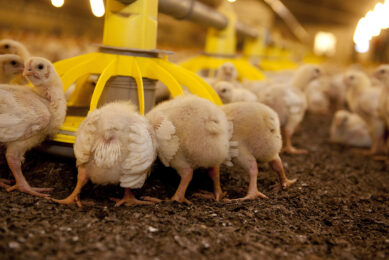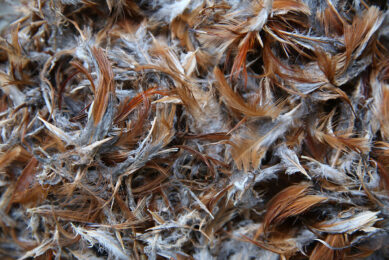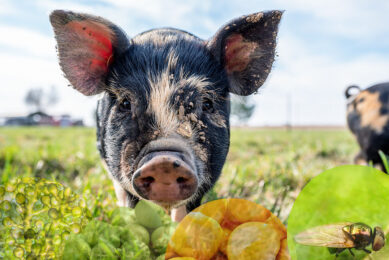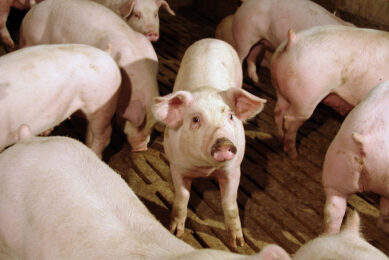Blog: Direct losses due to DON-induced feed refusal

Climate change awareness is growing worldwide as the dramatic effects on biological and environmental processes become more visible. Despite attempts to mitigate these effects,they are a reality that has numerous consequences for agriculture.
One disease that is directly influenced by temperature is Fusarium head blight (FHB) of small grain cereals. A recent review by Miller and Richardson on the perspectives of mycotoxins for 2013 in Canada emphasized that the dominant Fusarium species is determined by “temperature more than by any other factor”.
Climate models predict that thirty years from now, southern Ontario will face an increase in the amount of rainfall in the month of June. Higher precipitation levels result in warmer temperatures which favor the growth of deoxynivalenol (DON)-producing Fusariumspecies.
Genetic changes have also been observed in F. graminearum, the main causal agent of FHB, which affect the concentration of DON in the infected kernels. New populations are spreading and the long-term consequences are unpredictable. The ongoing rise in temperature will lead to new challenges in the management of fungal contamination and the resulting mycotoxins.
The ingestion of DON, the main mycotoxin produced by F. graminearum, has been associated with alterations of the nervous and immune systems, leading to vomiting and anorexia. Studies have demonstrated that DON-contaminated feed leads to lower performance, increases in feed conversion and higher mortalities of animals, which means that the invested money will generate less or no return. Even sub-chronic doses of DON have been shown to lead to decreases in weight gain.
The observation that pigs refuse feed even when DON is infused intraperitoneally (injection in the abdominal cavity) suggests that mechanisms other than palatability contribute to DON-induced anorexia. Feed intake is regulated via the central and peripheral neuroendocrine control system. The brain, especially the hindbrain and hypothalamus can signal immediate changes in feed intake.
The mechanism for DON’s anorectic effects involve altered neuroendocrine and cytokine signaling within the gut-brain axis:
- DON alters the oral sensory properties of feed due to its bitter flavor.
- DON increases the secretion of satiety hormones (peptide YY and serotonin) in the gastrointestinal tract, subsequently disturbs the levels of serotonin in the brain, and therefore leads to changes in appetite.
- DON induces the up-regulation of pro-inflammatory cytokines. An increased concentration of cytokines in the brain leads to reduced feed intake.
These changes in brain neurochemistry have been observed in pigs, chickens and turkeys. But compared to other animals, the anorectic effects of DON have been shown to havethe highest impact on pigs.
Conclusion
The contamination of feed with Fusarium mycotoxins is an on-going challenge due to the numerous factors affecting fungal growth. Temperature changes will inevitably lead to new populations of Fusarium for which long-term consequences cannot be predicted. Attempts to elucidate the mode of action of DON related to feed refusal have not yet been successful, which highlights the importance of reducing the level of toxin exposure for the animal.
Biography
Holds a doctoral degree in Food- and Biotechnology from the University of Natural Resources and Life Science in Vienna, Austria. After accomplishing her theses in the field of toxicology, she was working as a scientist in the field of sepsis and antibody development. Subsequently leading a very interesting three-year project on enzymatic degradation of mycotoxins. Since June 2012, she has been working at Biomin Holding GmbH as a Product Manager for the Mycofix product line.
Join 26,000+ subscribers
Subscribe to our newsletter to stay updated about all the need-to-know content in the feed sector, three times a week. Beheer
Beheer









 WP Admin
WP Admin  Bewerk bericht
Bewerk bericht